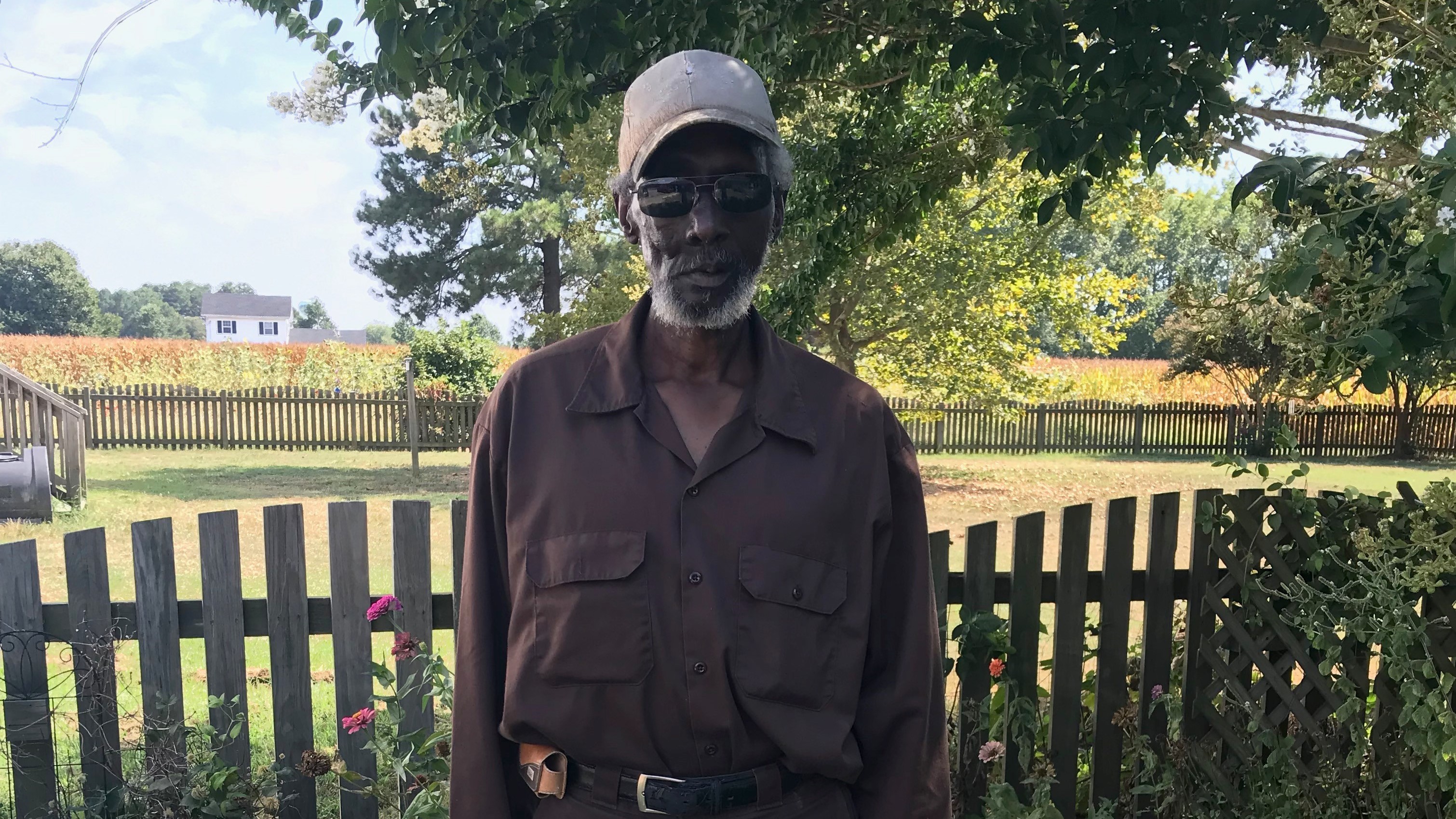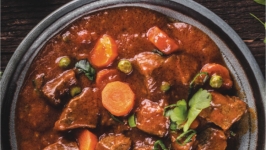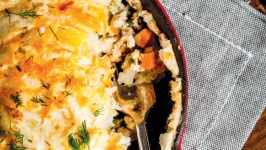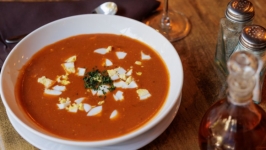Wisdom in the Woods
Mr. Robert Camper, a Trappe native, remembers seeing his first deer when he was just 5 years old, back when deer weren’t that common and bucks were rare. Born on Jamaica Point Farm, he grew up watching his father and uncle hunt deer, goose, squirrel, muskrat and raccoon, and when he turned 15, his hunting lessons began.
“I started with squirrels,” he smiles, “which are not easy to shoot, especially when you are first learning. I would head out for the afternoon and come back with nothing. My uncle, who gave me my first shotgun, a 12-gauge single shot, saw my frustration and took me aside. ‘You have to lead them, don't shoot right at them,’ he said. I took his advice and soon I brought home a squirrel.”
Robert’s mother passed away when he was only 5 years old, and luckily his aunt and uncle were right there to care for him and his siblings. The way Robert talks about his uncle, it’s obvious he played a big role in his upbringing and had a significant influence on his youth.
“When I was pretty good at squirrel hunting, my uncle bought me a 16-gauge bolt action,” he continues. “I went on my first deer hunt when I was 17. At first, I wasn’t allowed to go alone, I had to learn the woods. With no compass, you can get turned around pretty easily. But soon I felt comfortable and set out. I shot my first deer at 18, on Sergeant Farm in Trappe. My uncle gave me pointers, like to shoot at a certain area, like the front shoulder.”
His uncle also showed him how to hang the deer, skin it and cut it into quarters and then pieces. They cut chops, spareribs, steaks, ground some and made sausage, knowing a whole animal provides for a diversity of cuts and a range of dishes. “My aunt was a wonderful cook, old school, never used a recipe,” he reminisces.
Robert paid close attention to how she prepared the pot roasts, and now he is well known for his excellent cooking. Wanting to pry one of his revered recipes from him, I ask if he will share. Turns out, just like his aunt, he doesn’t write his seasoning secrets down either. I do, however, become privy to a few of his basics.
“Many people don't like deer, but that’s because they can’t cook it. You have to slow roast it. Good meat takes time.” Some of his favorite seasoning ingredients are Old Bay, salt and pepper, meat tenderizer, Worcestershire sauce, onions, green peppers and flour. In what quantity? “Little this, little that,” he replies. When I ask how long you cook the meat he says, “About that long.” Like most natural born cooks, Robert just has the feel of how much and how long.
He beams with pride that he was fortunate enough to be raised on “all-natural food,” that is, “everything we ate we either grew or hunted, there were no chemicals.” He enjoyed time in the kitchen with his aunt as she taught him how to can and freeze produce, and he paid close attention all the while keeping one eye on the pot roast.
According to the Maryland Department of Natural Resources, White-tailed Deer are an indigenous species to the Eastern Shore and were hunted by the Native Americans and the earliest settlers to the area. Due to overhunting and a lack of management in place, white-tailed deer had disappeared from the Eastern Shore by 1900 and were only found in the far reaches of Western Maryland. With the introduction of Wildlife Management in the early 1900’s, deer would rebound over the next century to the large numbers of deer we see today.
While the deer population is on the rise, conversely, the number of hunters in the state of Maryland is in decline. According to a recent U.S. Fish and Wildlife survey, less than 5% of Americans 16 years of age and older hunt. I wonder if the general public is fully aware of the untapped potential of this local, sustainable source of meat literally right in our own backyards eating our garden tomatoes. If you enjoy hunting for dinner, you won’t have to go too far. With 23 public wildlife management areas, and eight hunter safety classes available this fall, hunting on the Eastern Shore is not out of reach.
While hunting isn’t for everyone, chances are you may know someone who does. Perhaps they could share some meat with you - if you are game to try some local protein.
When I asked Robert why he hunts, he replied, “Hunting in the woods teaches you patience, it gives you a chance to study the deer. They may be big animals, but they are soft walkers and they freeze when they see, hear or smell something strange. They are very smart, and stealth, tuned into their surroundings, and they know the woods better than humans do.”
He adds, “I also like hunting because I like gathering my own food, as I have done my whole life. I don't want food with chemicals in it, I want my food to be real. I first went hunting because that is what my father and uncle did, and I wanted to be like them. Now that I am older, I look at my time in the woods differently. In the woods there is no body to bother you, it’s just you and nature. I find peace of mind and time to think.”
Robert suffered a setback last year with a diagnosis of cancer of the sinuses. After his operation, his doctors called his recovery “remarkable.” When I spoke with him in August he felt as good as new and will be out into the woods this fall with a crossbow and muzzleloader in the early seasons and a shotgun in late November, searching for dinner. He attributes his miraculous recovery to just two things, the good Lord above and what he eats.
After our conversation, it was clear to me that Robert gathers more than dinner from the forest. There is also wisdom in the woods.








